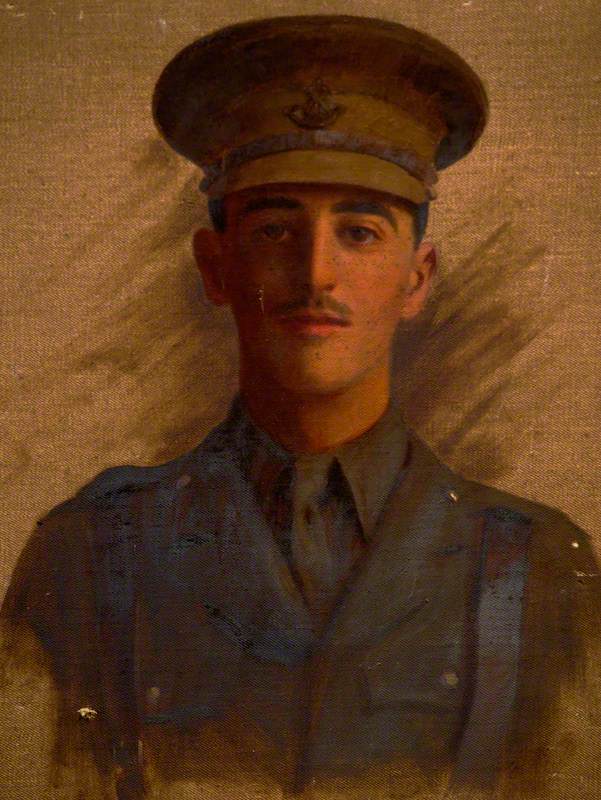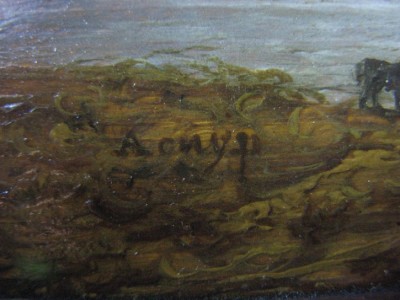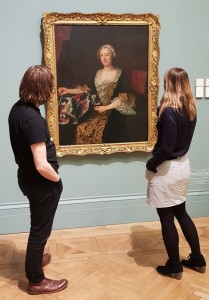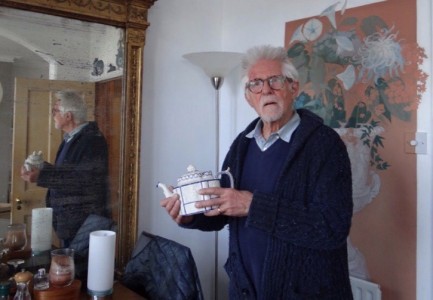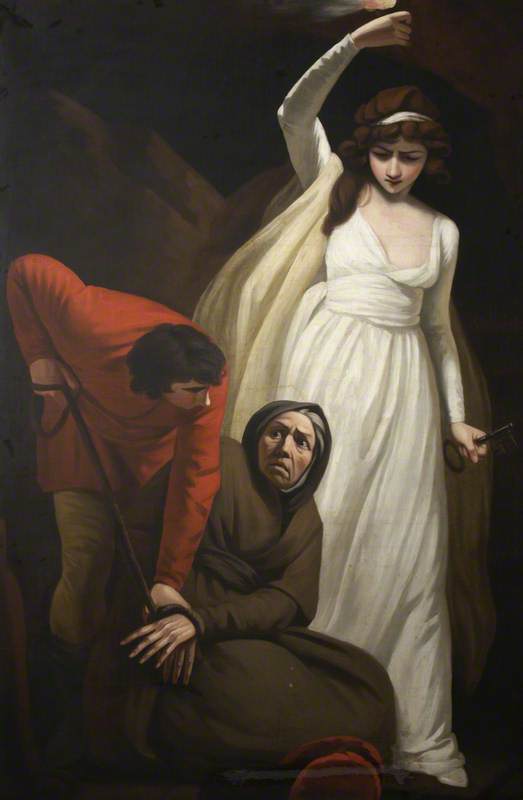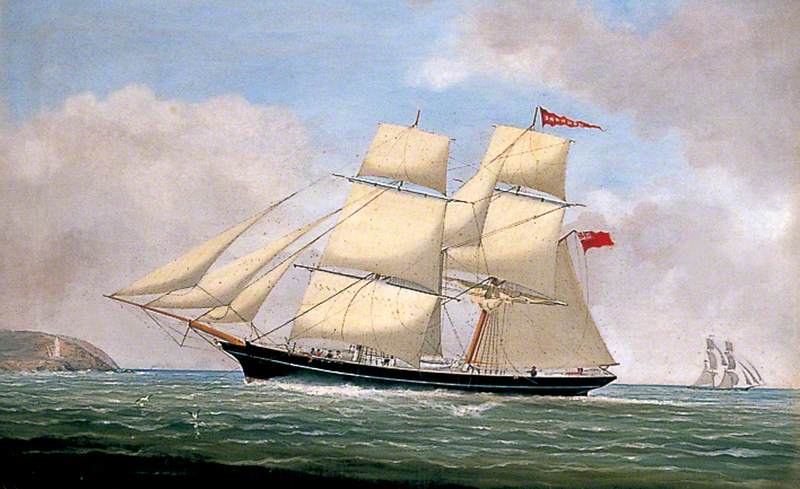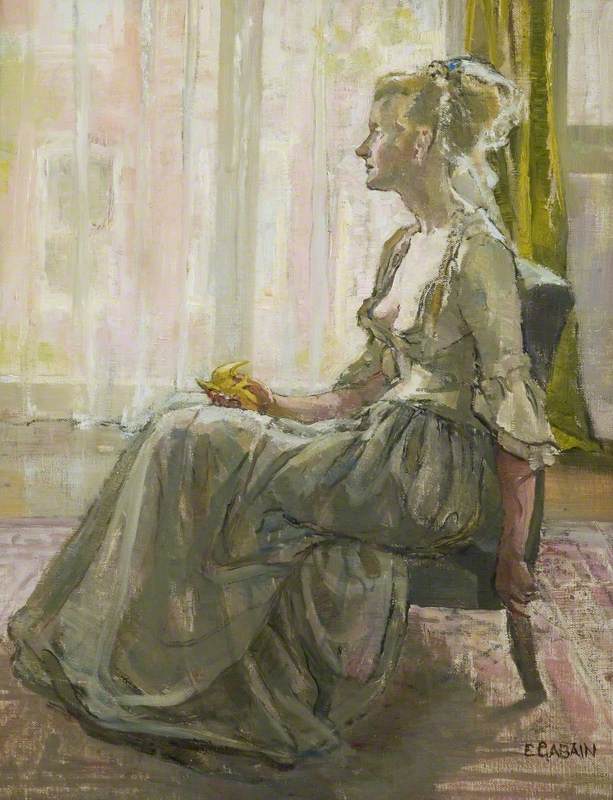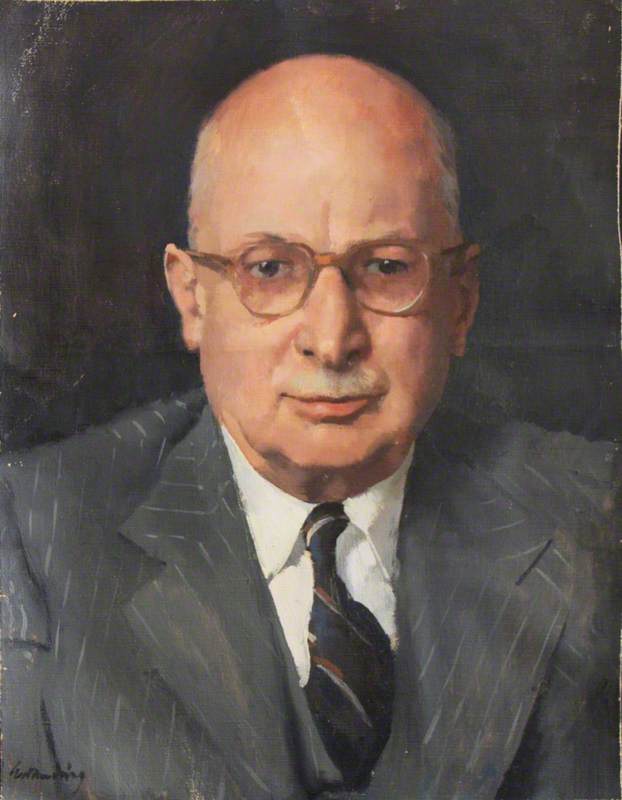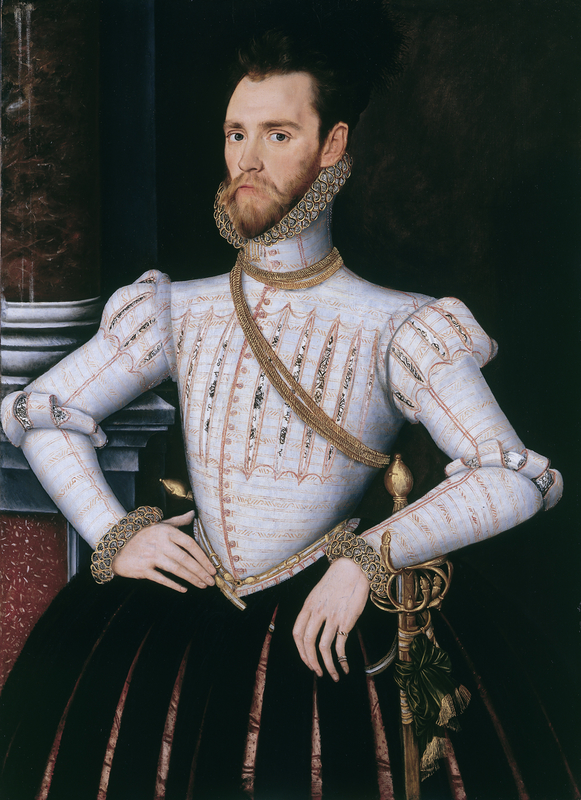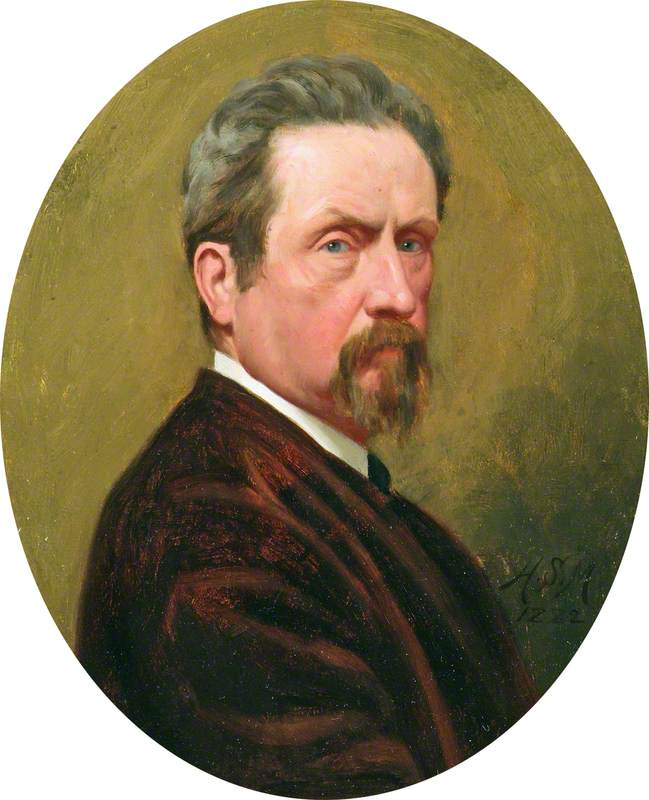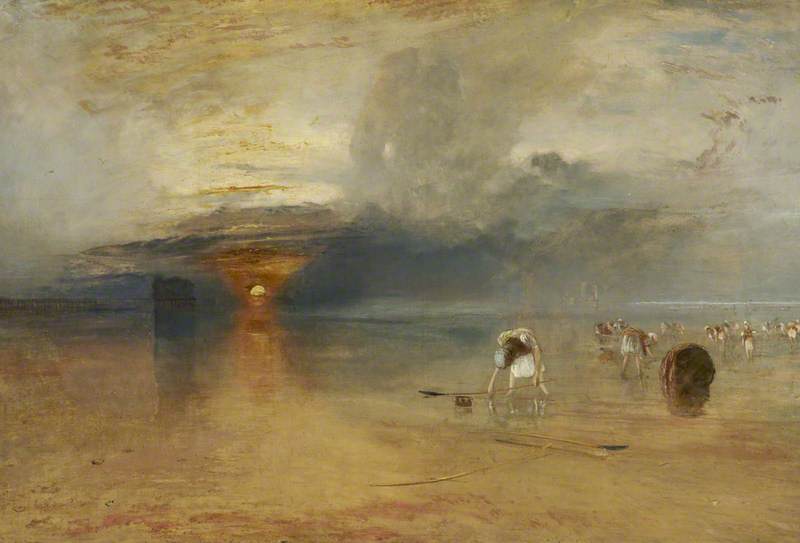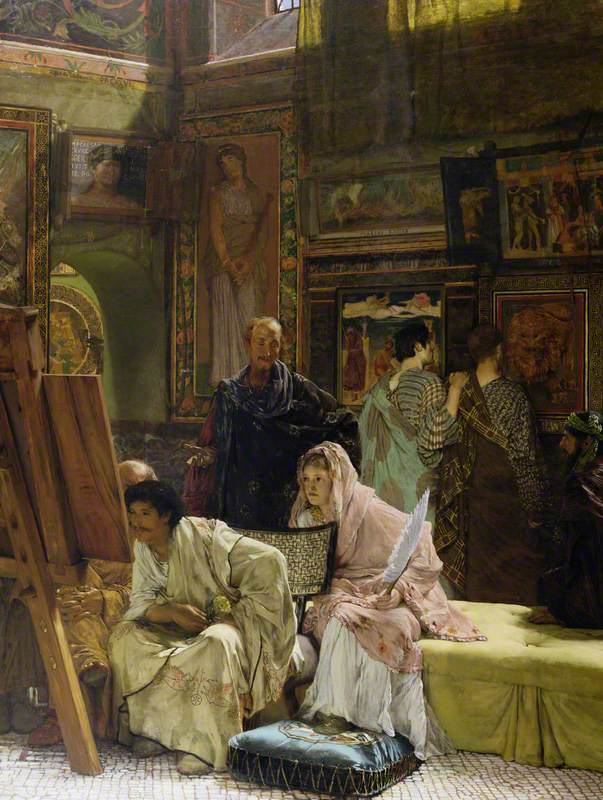Launched two years ago today, Art Detective is a supporting web project of Art UK. For those who haven’t encountered it before, Art Detective is an online forum to discuss art historical problems, focused around artworks that feature on Art UK (previously it used to link from the now defunct BBC Your Paintings site).
Anyone can propose a discussion on Art Detective: we take the approach that everyone – art expert, or not – potentially has useful knowledge about local areas, British history, costume, the military, and other such subjects which tie in with the national art collection. And of course, Art Detective provides those interested in art catalogues, art historical research, and artist biographies with a lot to get their teeth into.
Collections are encouraged to propose discussions about mystery items in their collections. Group leaders have been assigned to guide conversations and summarise results. Altogether, we are very pleased with the number of Art Detectives engaging with the site, and in awe of the results so far – which are all due to the wonderful efforts of contributors, group leaders and collections.
Art Detective homepage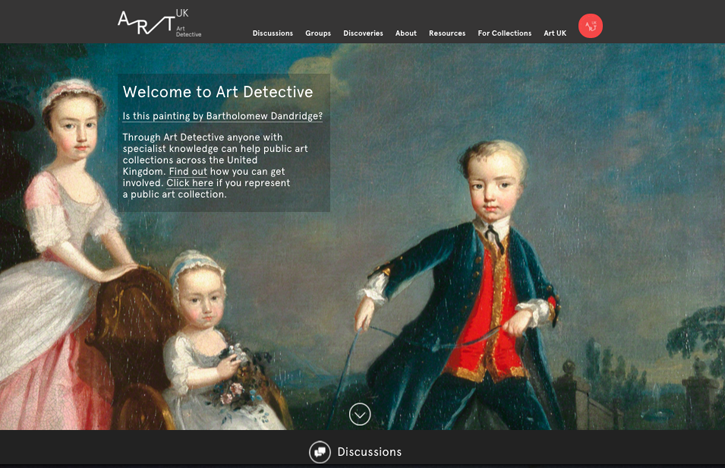
When Art Detective was built, Art UK (then the Public Catalogue Foundation) intended to make a free, shared resource for all national collections, linking them to experts: as we are aware, the arts and heritage sector is facing cuts and losing valuable in-house expertise. Yet during its build, Art UK decided to integrate the public more fully, by allowing anyone at all to propose a discussion. Before Art Detective existed, the public used to email the Your Paintings website with questions, facts and general comments. We did some work to analyse these emails, and the results showed that members of the public have a huge amount to contribute to the UK art collection.
We are very pleased with the results. In the first two years of its existence, over 4,000 people registered with Art Detective. We have hosted over 200 discussions, with over 60 of these resulting in a significant discovery. These have included an attribution of a Dutch Golden Age painter, Ary de Vois, to a work in Abingdon, a touching story of a First World War soldier came to light, an exact location of a conservatory in a Kyffin Williams painting was pinpointed, an unknown rheumatologist was identified – plus many more locations spotted, artists unearthed and stories told.
Art Detective discoveries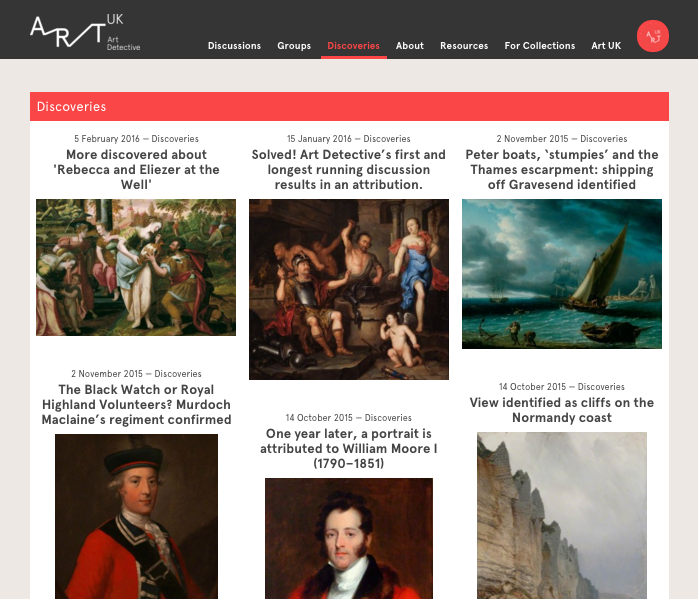
However the public section of the website is only a tip of the iceberg. Many proposed discussions do not become public, proposed discussions often result in collections being able to update their records without the need for a discussion, as the evidence is all there already. Over 700 proposed discussions resulted in a direct correction to artwork records, and a further 1,000 have improved existing artwork records. In addition to this, over 200 copyright holders have been traced due to information being provided through Art Detective.
Additionally, in 2015 Art UK (as the Public Catalogue Foundation) received the Museums and the Web 'Museum Professional' category winner. This was such an honour for us, considering this was the first time a UK institution has won in the overall category since the awards were started in 2009, and past winners included the Brooklyn Museum, the Indianapolis Museum of Art and the Rijksmuseum.
Museums and the Web awards
Now Art Detective exists within Art UK, while keeping its separate identity as its own online community. Links to discussions appear on the artwork pages of Art UK, and we have much more freedom to post interesting stories, and promote Art Detective on social media.
Lots of discussions are still ongoing, and we look forward to receiving ideas for new ones. Our main aims for the future of Art Detective are to get more discussions going, and more people involved. We will keep promoting the resource to the 3,000 venues on Art UK. With a great many proposed discussions still waiting for collection attention, we realise we need to make Art Detective work for those collections: cutbacks mean collections are often not able to do the research on their art that they really want to do, and we need to make Art Detective work for the collections that want to use it. We also want to expand the range of people contributing: we’d love to eventually see a mixture of hardcore users, the familiar names we’ve see doggedly contributing for years, to those who might have one fascinating thing to say, due to a personal connection to the artwork or artist.
We are proud of Art Detective, because it allows for both the promotion of art historical research as a skill, plus it also allows for those 'needle in the haystack' discoveries: unless the free online platform exists, such stories and information might never come to light.
Jade King, Head of Editorial at Art UK
We are keen to hear from collections that want to make the most of the resource: are there unattributed works in your collection, or portraits of unknown people, or landscapes? Let us help you propose a discussion: please get in touch at artdetective@artuk.org. Likewise we would love to receive any feedback on Art Detective or ideas for improving the site.
